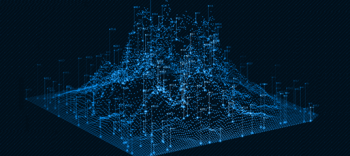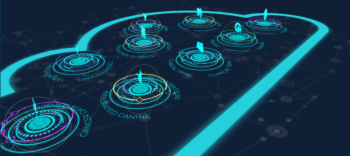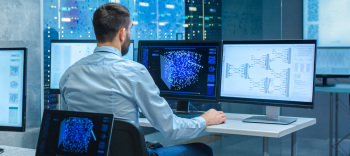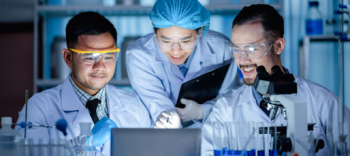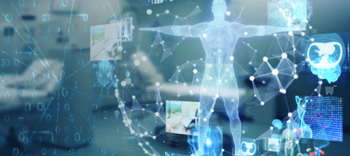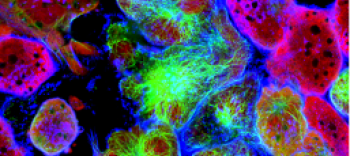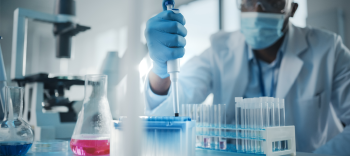Informatics and Data Science Program (IDS)
Our work at IDS lays the foundation for many of NCI’s biomedical informatics and data science initiatives, giving cancer researchers (like you) the resources you need to use data more efficiently and effectively.
Our program consists of three branches: the Clinical & Translational Research Informatics Branch, the Data Ecosystems Branch, and the Computational Genomics & Bioinformatics Branch.
Find Out What We Do
Clinical & Translational Research Informatics Branch (CTRIB)
Branch Chief: Umit Topaloglu, Ph.D.
At CTRIB, we’re working on new ways to use informatics across NCI, NIH, and the cancer research community. Our goal is to speed the translation of data-driven research into clinical practice. In particular, we’re focusing on:
Promoting Precision Medicine. We’re developing tools and pipelines that someday will help clinicians diagnose cancer early in the course of disease (when it’s highly treatable). We’re also helping develop new ways of predicting the best treatment for the best outcome for each person with cancer.
Capturing and Managing Data. We’re working on streamlining how researchers capture and report data from NCI-sponsored precision medicine trials and clinical trials. We’re also helping to advance the use of Real-World Data (RWD) from Electronic Health Records (EHRs). We’re identifying and addressing gaps in EHR data pipelines, establishing criteria for informatic tools to support quality RWD, and advancing reliable research methods.
Making Data Useful. We’re working to make certain the data you generate are useful to others in the cancer research field. We do this by developing and maintaining semantic resources and vocabularies.
Data Ecosystems Branch (DEB)
Branch Chief: Tanja Davidsen, Ph.D.
Our work at DEB centers on building, strengthening, and maintaining the infrastructure and tools that make up a sophisticated data ecosystem. Our focus is on:
Fostering Collaboration. We establish working relationships with data generators and submitters, cancer researchers of all technical abilities, as well as partnerships with various bodies that govern data standards. We engage with stakeholders from government agencies, industry, and academia to stay abreast of the most current resources and novel ideas in cancer research, especially in informatics, high-performance computing, and artificial intelligence (AI).
Lowering Barriers to Data and Analysis. We are dedicated to removing barriers for the cancer research community, improving their experience, and expanding the use of our resources. We are continuously improving processes for data submission, data access (i.e., ensuring data are Findable, Accessible, Interoperable, and Reusable [FAIR]), as well as availability of search and retrieval, cross-domain analysis tools, platforms, and workflows. Additionally, we are exploring the integration of intuitive user interfaces leveraging the power of traditional and AI technologies to allow for natural language queries across our resources.
Sharing Resources. We are centralizing resources, such as publicly available analytical tools and training, to help researchers access and use NCI-funded cancer research data. Our work includes exploring new ways of working with data—both in the cloud and locally—using technologies such as federated learning and edge computing. Our success and sustainability lie in establishing a quality infrastructure that provides for secure and appropriate access to sensitive data, as well as planning for long-term data storage and tool accessibility.
Computational Genomics & Bioinformatics Branch (CGBB)
Branch Chief: Daoud Meerzaman, Ph.D.
At CGBB, we help solve research problems. Our staff offer skills and expertise to others (at NCI, NIH, and in the broader research community) to develop new bioinformatic and computational-genomics tools. We’re focused on:
Advancing Research. We’re using the latest tools and technologies—such as proteogenomic approaches for sequencing and interpreting genomic, transcriptomics, and proteomic data—to advance cancer research.
Developing Tomorrow’s Technology. Our team also is working to develop and implement new approaches, such as AI, machine learning, and algorithms, to find better ways of using data (e.g., genomic, proteomic, and imaging) to predict, diagnose, and treat cancer.
Education and Training. We’re fostering the next generation of researchers and fellows through a robust training program. We also coordinate webinars and seminars, featuring renowned experts in the biomedical and technology fields, who share their insight and skills in bioinformatics and computational-genomics tools.
Meet Our People
Meet the team of professionals behind our efforts:

